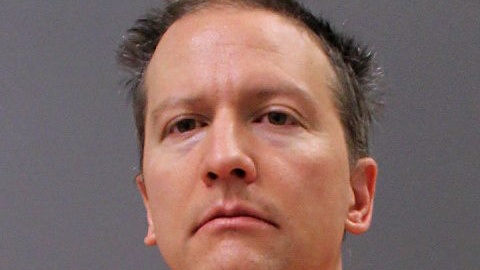Former Minneapolis officer Derek Chauvin, convicted on Tuesday for killing George Floyd, now finds himself in more turmoil as the U.S. Justice Department looks into his alleged assault against a Black teenager three years ago.
Prosecutors first learned about the 2017 incident last year as they were preparing to present their argument in Floyd's case, ABC News reported.
The court, however, blocked the prosecutors from bringing up the alleged incident as they tried to prove a pattern in Chauvin's behavior. Still, the Justice Department is considering whether it should bring federal charges for the previous incident.
According to the Minneapolis Star Tribune, prosecutors first received a series of videos in November which showed Chauvin striking a Black teenager in the head. The former officer allegedly held the boy down with his knee for nearly 17 minutes and ignored the teen's complaint when he said he couldn't breathe.
"Those videos show a far more violent and forceful treatment of this child than Chauvin describes in his report [of the incident]," Matthew Frank, one of the state prosecutors, wrote in a court filing.
While making their case in the Chauvin trial, state prosecutors said the officer rapidly escalated his use of force for a relatively minor offense in 2017, as he did last year.
"Just like with Floyd, Chauvin used an unreasonable amount of force without regard for the need for that level of force or the victim's well-being," Frank wrote.
The prosecutor also said the officer "grabbed the child by the throat, forced him to the ground in the prone position, and placed his knee on the child's neck with so much force that the child began to cry out in pain and tell Chauvin he could not breathe."
Chauvin's defense attorney, Eric Nelson, said there is no similarity between the two cases. According to Nelson, the officer followed the Minneapolis Police Department policy by using a neck restraint against someone "actively resisting" arrest.
“The similarities between the State’s proffered acts, which were non-criminal incidents of Mr. Chauvin acting in his duties as a Minneapolis Police officer, and the charged offenses are merely: They involved Mr. Chauvin effecting, or assisting in, the arrest of a suspect; all involved resistance from or a struggle with a suspect; some involved Mr. Chauvin using his body weight to control an arrestee; some involved a neck restraint,” Nelson wrote. “This is simply insufficient to show a marked similarity between the proffered incidents and the charged offenses.”
The judge sided with Nelson and refused to let prosecutors use the evidence. The Minneapolis Police Department, which was recently briefed on the federal government's inquiry in the 2017 incident, said the agency will now cooperate with the Justice Department.
"We will assist the DOJ with anything that they need, and the chief has pledged full cooperation with any investigating agency," MPD spokesman John Elder said.
In the 2017 encounter, Chauvin and another officer responded to a home where a woman said she had been attacked by her 14-year-old son and her daughter.
Chauvin allegedly ordered the son to get on the ground and attacked him when he refused, hitting him with a flashlight multiple times and grabbing him by the throat. According to Frank, the ex-policeman also "applied a neck restraint, causing the child to lose consciousness and go to the ground."
An ambulance eventually took the boy to a hospital, where he received stitches.
As Blavity previously reported, the Justice Department also plans to launch a federal civil rights inquiry into Minneapolis police operations and its use of lethal force. Attorney General Merrick Garland said the investigation will examine officers' use of excessive force and discriminatory actions involving those with mental health problems, as well as department training policies and supervision.
"Broad participation in this investigation from the community and from law enforcement will be vital to its success. The Justice Department has already begun to reach out to community groups and members of the public to learn about their experiences with the MPD," Garland said.
